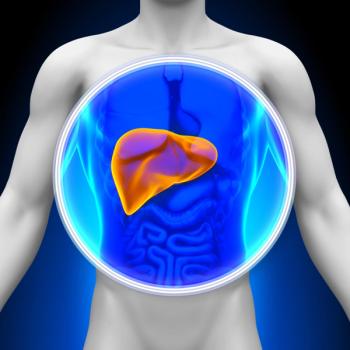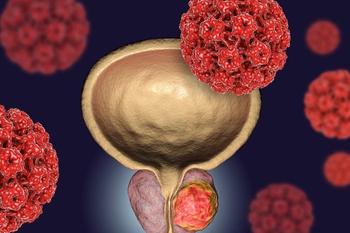
Among 115 patients treated with avutometinib and defactinib, only 5 deaths occurred in the study, none of which were related to study treatment.

Your AI-Trained Oncology Knowledge Connection!


Among 115 patients treated with avutometinib and defactinib, only 5 deaths occurred in the study, none of which were related to study treatment.


In a discussion at IBC East, Heather McArthur, MD, highlighted how immunotherapy is being utilized for patients with early-stage breast cancer.

Phase 1b data show antitumor activity with the givastomig combination across a wide range of CLDN18.2 expression.

Results from a phase 2 study showed a median OS of 10.2 months in all patients with small cell lung cancer who received stereotactic radiation therapy.

The B7-H3–low and TIGIT-high biosignatures correlated with superior event-free survival outcomes in those with melanoma treated with the combination.

According to Jorge Nieva, MD, taletrectinib may be a primary frontline therapy option for those with ROS1-positive non–small cell lung cancer.


A real-world analysis of teclistamab, elranatamab, and talquetamab showed comparable outcomes in relapsed or refractory multiple myeloma.

Data from the phase 3 BEACON CRC trial support the approval of encorafenib plus cetuximab for this colorectal cancer population in China.

Data from the TALENTACE trial support TACE plus atezolizumab/bevacizumab as an effective option in those with unresectable hepatocellular carcinoma.


Quemliclustat plus gemcitabine and nab-paclitaxel chemotherapy outperformed median OS benchmarks in patients with metastatic PDAC.

Use of TumorSight Viz may support improved consistency, precision, and efficiency in breast cancer surgery.

Heather McArthur, MD, spoke about the use of CDK4/6 inhibitors in the adjuvant setting for patients with HR+/HER2– breast cancer.

Data from the phase 3b ProvIDHe trial show "reassuringly good" PFS and OS outcomes with ivosidenib in a real-world cohort.


“Developments that take high-dimensional data and come up with interpretable insights…are going to play an increasing role,” says Smita Krishnaswamy, PhD.

More detailed overall survival results from the phase 3 EMBARK trial for patients with nmHSPC will be shared at an upcoming medical conference.

Data from the RATIONALE-309 trial support the European Commission’s approval of frontline tislelizumab plus chemotherapy in this patient population.

Treatment with tarlatamab demonstrated intracranial responses in a real-world cohort of patients with extensive-stage small cell lung cancer.

HTMC0435 plus temozolomide led to an ORR of 24.5%, with a median OS of 12.0 months, in patients with platinum-sensitive and platinum-resistant small cell lung cancer.

The 2 denosumab biosimilars previously received FDA approval for select patients with multiple myeloma, solid tumor bone metastases, and osteoporosis.


Investigators of the phase 2 PEVOsq trial identify PD-L1 positivity and HPV positivity as predictive biomarkers of response to the pembrolizumab regimen.

A PDUFA date for decitabine/cedazuridine and venetoclax in newly diagnosed AML has been set for February 25, 2026.

Final data from the phase 3 ENLIVEN trial demonstrate long-term tumor responses and a consistent safety profile with pexidartinib.

The FDA has waived the need for a botensilimab monotherapy arm in the phase 3 BATTMAN trial evaluating the combination in MSS metastatic colorectal cancer.

Subgroup data from RATIONALE-306 support the frontline use of tislelizumab plus chemotherapy in locally advanced esophageal squamous cell carcinoma.

Treatment with ISB 2001 demonstrated robust responses across difficult-to-treat multiple myeloma subgroups in the phase 1 TRIgnite-1 study.